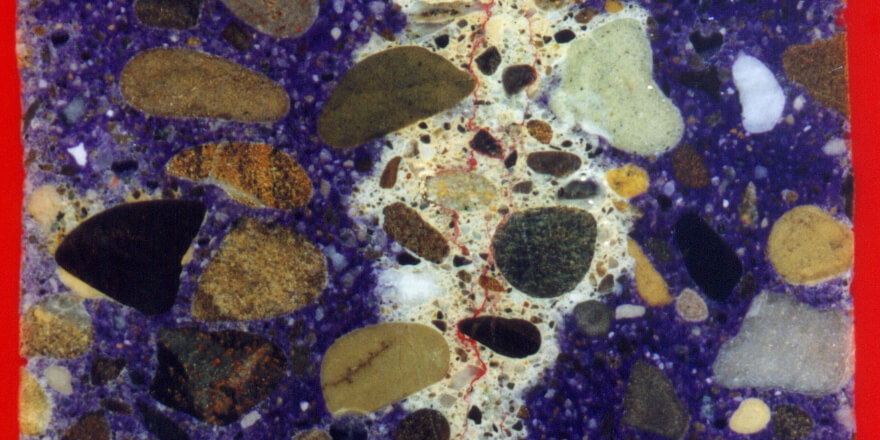
Concrete Carbonation Testing
Enquire Today For A Free No Obligation Quote
At Concrete Carbonation Testing, we evaluate the depth and impact of carbonation in concrete to maintain its structural integrity and prolong its lifespan.
Our services are designed to identify vulnerabilities, mitigate risks, and offer tailored solutions that preserve concrete’s durability in various applications.
Serving customers across the UK, we use cutting-edge techniques and tools to deliver precise, reliable results for residential, commercial, and industrial properties.
Why Is Concrete Carbonation Testing Important?
Concrete carbonation testing is critical for preventing structural failures. Carbonation weakens the concrete by lowering its pH, which disrupts the protective environment for steel reinforcements, making them prone to rust.
Left unchecked, this can cause cracks, spalling, and eventual structural collapse. Regular testing ensures early detection of risks, minimises repair costs and extends the service life of structures.
How Does Concrete Carbonation Occur?
Carbonation happens when carbon dioxide (CO₂) from the air reacts with calcium hydroxide in concrete, forming calcium carbonate and reducing the pH.
This reaction progresses over time, especially in areas exposed to moisture and air, gradually compromising the concrete’s protective barrier for steel reinforcements. Factors such as poor-quality materials, insufficient curing, and environmental conditions can accelerate the process.
What Are the Signs of Carbonation in Concrete?
The signs of carbonation in concrete are often visible and include surface discolouration, cracks, and spalling, where sections of the concrete flake or break away.
Rust stains from corroded steel reinforcements and reduced structural strength are also common indicators.
Identifying these signs early through regular inspections and testing is essential for maintaining structural integrity.
What Is the Process for Conducting a Carbonation Test?
For conducting a carbonation test, a core sample of the concrete is drilled or extracted to expose the internal surface and a phenolphthalein solution is applied to the freshly exposed concrete.
This pH-sensitive indicator reacts with the surface: areas unaffected by carbonation turn purple (indicating higher alkalinity), while carbonated zones remain colourless or show minimal reaction.
The final step involves recording the results to guide repair or reinforcement strategies, ensuring the structure’s durability and safety.
Professional execution of concrete carbonation testing ensures accurate results and practical solutions.
What Methods Are Used for Concrete Carbonation Testing?
Concrete carbonation testing employs phenolphthalein testing, core sampling, laboratory analysis, and digital pH meters to assess carbonation depth and extent accurately.
These methods include:
- Phenolphthalein testing: A pH-sensitive solution is applied to a concrete sample, changing colour to indicate pH levels.
- Core sampling: Concrete cores are extracted for detailed laboratory analysis.
- Laboratory analysis: Provides in-depth evaluation of carbonation depth and concrete condition.
- Digital pH meters: Offers precise measurements of pH levels in concrete.
How Much Does Concrete Carbonation Testing Cost?
Concrete carbonation testing costs range from £100–£300 for phenolphthalein tests to £500–£1,500 for core sampling and laboratory analysis, depending on structure size and testing complexity.
Concrete carbonation testing costs vary depending on the structure’s size, number of samples, and testing methods.
Obtaining a professional quote ensures transparency and accurate budgeting for the project.
Contact us to get a comprehensive quote.
How Do You Mitigate Carbonation in Concrete?
Preventing concrete carbonation involves a combination of proactive measures, such as using low-permeability concrete mixes, applying surface sealants to block CO₂ penetration, and ensuring proper curing during construction.
Regular maintenance, including cleaning and resealing, also helps protect the concrete from environmental exposure and reduces the risk of carbonation.
Can Carbonation Be Reversed or Treated?
While carbonation cannot be completely reversed, its effects can be effectively treated to prevent further structural damage.
Alkaline washes are commonly applied to restore carbonated concrete’s pH balance, helping protect steel reinforcements from corrosion.
Cathodic protection systems, which involve introducing an electrical current, are another advanced method to prevent further corrosion of steel reinforcements.
These treatments not only address the immediate effects of carbonation but also enhance the durability and longevity of the structure, ensuring it remains safe and functional over time.
What Standards Govern Concrete Carbonation Testing?
Concrete carbonation testing adheres to standards like BS EN 14630:2006, which outlines methods for determining carbonation depth.
Other local and international standards ensure reliable concrete carbonation testing procedures and accurate interpretation of results, guaranteeing safety and compliance in structural assessments.
How Often Should Concrete Carbonation Testing Be Performed?
Concrete carbonation testing should be conducted every 5–10 years for older buildings or those in harsh environments to identify issues early and maintain structural safety.
The frequency of testing depends on the structure’s age, location, and exposure to environmental factors.
Older buildings and those in aggressive environments should undergo testing every 5–10 years.
Regular concrete carbonation testing ensures potential issues are identified early, preventing costly repairs and maintaining structural safety.
Find More Info
Make sure you contact us today for a number of great Concrete Carbonation Testing services.
For more information on Concrete Carbonation Testing, fill in the contact form below to receive a free quote today.
★★★★★
Concrete Carbonation Testing provided us with precise and reliable results that helped us ensure the long-term durability of our structures. Their team was professional, efficient, and highly knowledgeable, making the entire process seamless. Thanks to their expertise, we were able to take proactive measures to protect our concrete assets. I highly recommend their services
Mark Denslow
Greater London
★★★★★
The team at Concrete Carbonation Testing exceeded our expectations with their thorough and accurate analysis. Their detailed reports helped us identify potential risks early, saving us both time and money on repairs. It’s rare to find such a dedicated and responsive company in this field. We’ll definitely be using their services again
Lisa Fairchild
Greater London